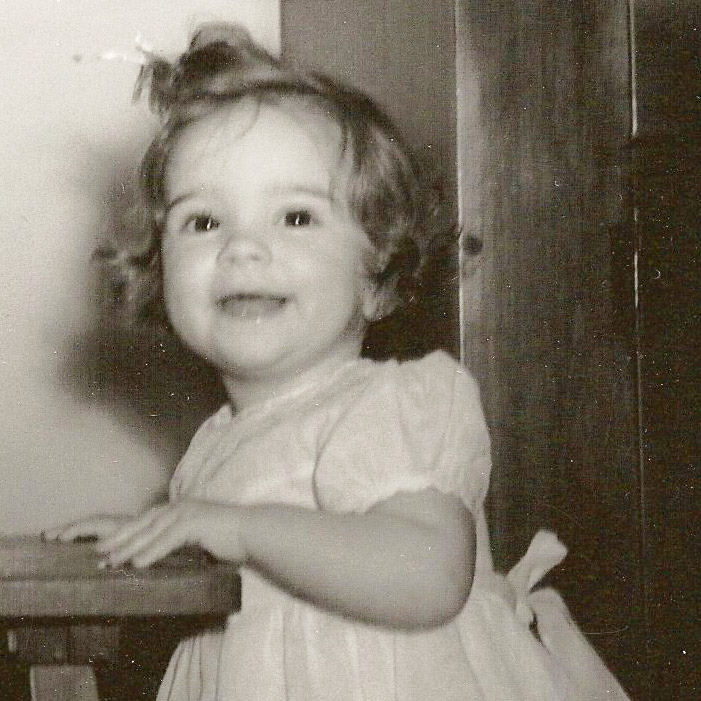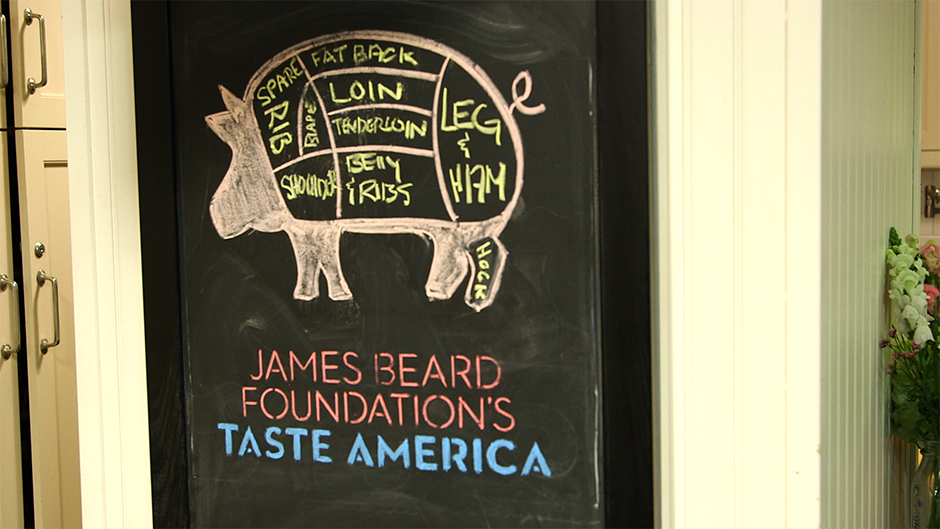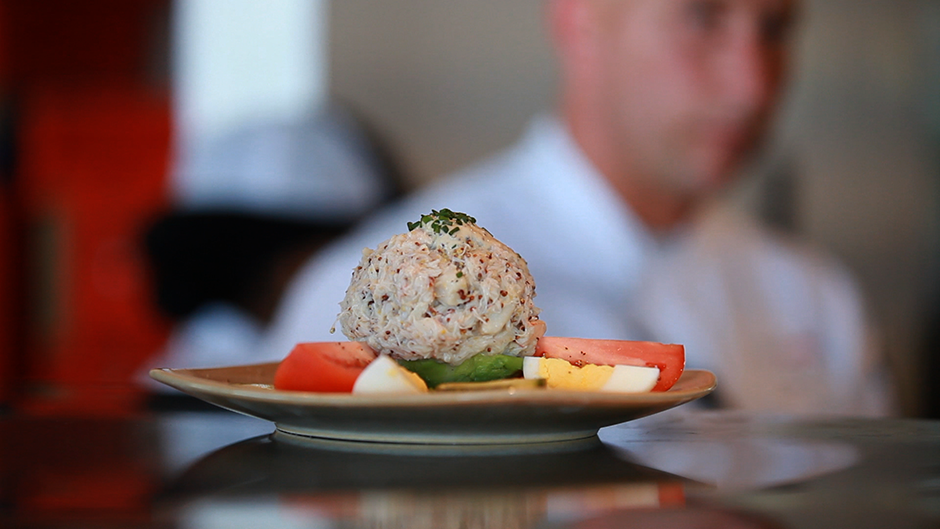While I was growing up, my mother was a get-folks-fed, functional kind of cook. A teacher and mother of two, she always managed at least one meal (though it was usually three) each day, constructing well-balanced plates with a thoughtful array of proteins, vegetables, and starches.
She was careful to avoid the things she knew we would reject (lima beans for me; steamed broccoli for Dad) and loved to toss in treats (butterscotch pudding for everyone). Lunches were made for school.
Holiday dinners were a three-day affair that started with the heady scent of sautéed onions and ended with the sweetly fragrant spices layered into her pumpkin pie.
Half of the time she worked from a recipe — her collection of Southern Living Annual Recipes books were a favorite go to — but the other half, she worked “by the seat of my pants,” she’d say. There were a handful of favorite dishes she knew by heart, and usually measurements were an afterthought.
“I season by taste,” she’d say and dip a finger into a bowl of mashed potatoes, pausing to taste its contents, eyes looking upward as she pondered what might be missing. She cooked constantly — not for pleasure or to let off steam, but to get dinner on the table — and always produced tasty meals.
But that was all before the accident that stripped my mother of her taste and smell. That was before the years she spent avoiding the kitchen, avoiding food, and avoiding her fear of making something over-salted, undercooked, or completely inedible. It was also long before she overcame all of those fears and restrictions, started experimenting, and learned to fall in love with the joy of cooking.
My mother doesn’t remember much about the accident. She had been on a train from New York to Wilmington, Delaware, where we lived at the time.
When the train pulled into the Wilmington station, she quickly gathered her things and ran to the exit to jump off. Just as she was stepping down, the train lurched forward, and the motion of the beast spun her around. She fell, smacking the back of her head against the concrete platform.
It was late June and I had just finished my junior year of high school. Being very busy with my teenage life, it took me a minute to digest my sister’s words.
Mom. Accident. Hospital.
She had a concussion and a fractured skull. Thankfully, the doctors told us, she would be ok. But there was no way of knowing what the long-term effects might be.
Mom was discharged a few days later with a very tender head and some serious nausea. Within minutes of arriving at home, she asked my dad for a Diet Coke — she consumed anywhere from three to five on a daily basis. But with one sip, she told us it was flat. Another one? Flat. A ginger ale? Also flat. “It’s just not right,” she said.
“Well, that might go away,” said the doctor who’d treated her. “It’s typical to have that reaction when you suffer from the kind of concussion you did.” The olfactory nerves, which sit at the base of the skull, had likely been damaged, he said. Some time passed and Mom still couldn’t taste or smell anything. We started to realize that her condition could be permanent, and to keep from annoying her, we stopped asking if it was getting better. She saw a neuro-psychologist who eventually recommended an appointment at the University of Pennsylvania’s Smell and Taste Center, one of only two in the country, where there was a six-month waiting period.
Earlier that year, Dad had been transferred to Houston, Texas and was already spending most of his time at the office down there. Mom was planning to join him as soon as I graduated, but until then, with my sister away at college, she and I were on our own.
By now, I was busy being a senior in high school. I tested her lack of smell by going out and smoking cigarettes. She never once noticed. And even though eating together at the dinner table had forever been a family ritual, I suddenly had plenty of reasons to avoid it.
Mom, meanwhile, had plenty of reasons not to cook.
Besides her fear of creating something inedible, she just wasn’t interested in spending time on a meal she couldn’t enjoy. The smell of chopped garlic, the peppery bite of a well-made vinaigrette — with those basic pleasures gone, what use was the effort? We muddled through dinner with take-out and trips to our favorite sub shop. And if I wasn’t around — an increasingly common behavior — she wouldn’t eat and quickly started losing weight.
A few months into the ordeal, I finally picked up the slack. With her guidance, I learned to throw together a few easy meals: baked, stuffed manicotti, homemade pizzas. They were simple projects that really only required some assembly, but it was my first experience understanding the sense of gratification that comes from feeding someone else. I became interested in the inner workings of our kitchen — why it was organized just so; how to put together a grocery list; seeing, probably for the first time, the simultaneous order and chaos that occurs when chopping, shredding, baking, and plating. While Mom sank further into a culinary void, I felt my first spark of romance with food.
Six months after the accident, we celebrated my 18th birthday. As she had done for every birthday of my life, and my grandmother had done for every birthday of hers, my mom woke up that morning and started baking an angel food cake.
There was no forethought; she simply pulled out the ingredients and got started. Cake flour. Sugar. Egg whites. Almond and vanilla extracts. She pulled out her old, overused tube pan and her mixer, then beat the egg whites and cream of tartar together before adding the sugar. As she worked, she thought about her mom’s angel food cakes and remembered how the sweet smell of almond extract would waft through the house, signaling yet another family birthday. “I could tell an angel food cake from ten miles away,” she says today. Folding the extract into my cake, she wanted so badly to smell that sweet, pungent scent. To feel that sensation of home.
And then, just like that, it hit her.
Earthy nuttiness. Sweetness. Aroma.
She sensed almond in the air.
She couldn’t smell anything, of course. But a smell memory had returned. “And that was the beginning of just saying, ‘OK. I know what that smells like,’” she says.
At long last, she had her appointment at the Smell and Taste Center, and they determined that her olfactory nerves had been severed. They called it anosmia: the inability to smell, which was ultimately affecting her sense of taste. She could differentiate salty and sweet and, to lesser degrees, bitter and tart. They recommended that she never live alone in case of a gas leak and to pay very close attention to milk carton expiration dates. Other than that, there was nothing they could do.
I eventually left for college, and Mom and Dad made their way to Houston. They took advantage of their empty nester status and ate out frequently.
When Mom did cook, she held onto the idea of her sense memory and imagined the many scents and flavors she was missing. She enlisted Dad to help her overcome her fear of seasonings (he was more than happy to assume the role of house guinea pig) and began to appreciate the construction of a bite: the sensation of the food and its texture, the color of various foods on the plate.
Instead of protein, vegetable, starch, she created dishes that had crunch, vibrant color, and two of her favorite detectable palate notes, salt and sweetness.
Tomato Caprese salads; simply baked fish over a bed of asparagus spears; quickly stir-fried vegetables. No longer confined to cooking to feed a brood, Mom started to cook for fun, pulling recipes out of magazines or cookbooks, buying kitchen tools and testing out new gadgets. Food and cooking became a hobby, something she looked forward to daily.
During my breaks from college, Mom would enlist me to help in the kitchen. Whether it was decorating a batch of Christmas cookies or helping her prep for Thanksgiving, I was usually eager to get to work (dorm cooking left plenty to be desired). Especially since I knew I would pick up a few tips along the way. The holiday before I left to spend a semester studying abroad in London, where I would live in my first flat, she helped me plan a meal from scratch and took me shopping. We scoured the aisles in search of our ingredients and I marveled at her appreciation for the variety of colors and textures. She wasn’t seeking sustenance, that vital but mundane purpose she once survived on — now she was seeking pleasure. To this day, I can’t go into a grocery store without hearing her voice in the back of my head, calling, “Ooh! Grab some parsley and lemons. We need some color to go with all of those browns on the plate.”
She and Dad developed a close-knit group of friends who started their own gourmet group. They called themselves “Ten Chefs Too Many,” and each couple took turns hosting dinners, always challenging themselves to create elaborate, complicated menus. The theme would vary, from one particular cookbook to a specific country’s cuisine. Mom and Dad started cooking together more often — and always purely for fun.
One club dinner they hosted involved a complex menu of Chinese dishes, including Mom’s favorite, Kung Pao Prawns in Bird’s Nests. She and Dad spent two days testing the dish, practicing the dexterity required to remove the thin noodles of the “bird’s nest” from the piping hot oil in one piece. Dad tested the seasonings while Mom perfected the visual elements of the dish. And despite the fact that she couldn’t taste their final creation, Mom swears she savored every bite. “It had all the essential elements,” she says. “Crunchy, salty, fried, and fattening.”






